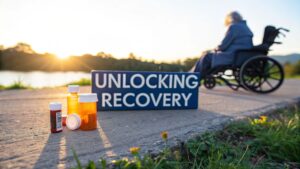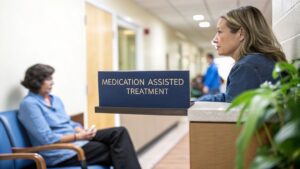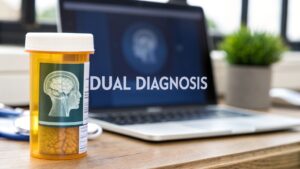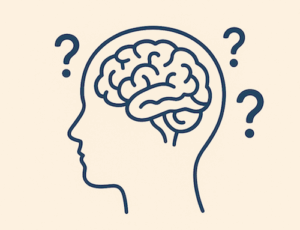South Shore Recovery Center Drug and Alcohol Rehab Massachusetts
Outpatient Addiction Treatment in Plymouth, Massachusetts
Addiction Treatment & Mental Health Programs in Massachusetts
South Shore Recovery Center provides outpatient drug, alcohol, and mental health treatment services to adults seeking recovery and emotional wellness in Massachusetts. We empower patients to reclaim their lives by teaching them skills to resolve trauma, manage mental health challenges, cope with stressors, and cultivate resilience. Through evidence-based therapies, counseling, and compassionate support, we help individuals overcome addiction and improve their mental well-being—building a healthier, brighter future. Our mission is to create lasting recovery and healing, fostering a renewed sense of joy, fulfillment, and personal growth.
Located in Plymouth, Massachusetts, South Shore Recovery Center is a leading provider of Substance Use Disorder (SUD) treatment services. We offer Day Treatment Programs (DTP), Half-Day Treatment Programs (HDTP), and Outpatient (OP) services. Our specialized programs are designed to comprehensively address a wide range of addictive disorders, providing individuals with the tools and support needed to achieve lasting recovery.
Alcohol Use Disorder (AUD)
Opioid Use Disorder (OUD):
Opioid addiction can be overwhelming, but our experienced team is dedicated to guiding individuals through the challenges of Opioid Use Disorder and helping them improve their quality of life. Through medication-assisted treatment, psychotherapy, and a supportive environment, we help individuals overcome the grip of opioids and work toward a healthier future.
Stimulant Use Disorder
Our comprehensive outpatient addiction treatment approach for Stimulant Use Disorder encompasses both amphetamine and cocaine addiction. We provide personalized strategies to manage cravings, address underlying triggers through psychotherapy, and develop coping mechanisms, supporting individuals in their journey toward recovery.
Benzodiazepine Use Disorder
Breaking free from benzodiazepine dependence requires a specialized approach. Our outpatient rehabilitation facility offers expert guidance, therapy, and other information to ensure a safe and successful recovery process for individuals struggling with Benzodiazepine Use Disorder.
Cannabis Use Disorder
For those seeking assistance with Cannabis Use Disorder, we provide a supportive environment to explore the underlying factors contributing to addiction and substance dependence. Our team helps individuals develop healthier coping strategies for drug withdrawals and offers guidance on achieving a balanced lifestyle.
Prescription Drug Misuse
Prescription drug misuse can have severe consequences. Our outpatient addiction treatment services address the misuse of prescription medications, offering educational information, psychotherapy, and strategies to manage pain, drug withdrawal, and mental health conditions without resorting to misuse.
Co-Occurring Disorders (Dual Diagnosis):
Many individuals with substance use disorders also face co-occurring mental health challenges, such as bipolar disorder, schizophrenia, anxiety disorder, and many others. Our centers specialize in addressing these complex comorbidity cases, providing integrated treatment that targets both addiction and underlying chronic conditions for a better quality of life.
At South Shore Recovery Center, we are committed to providing compassionate, patient-centered care for individuals struggling with various addictive disorders. Our DTP, HDTP, and OP programs are designed to offer accessible and effective treatment options that empower individuals to reclaim their lives, achieve lasting sobriety, and embrace a healthier, brighter future that’s free from addiction and substance dependence. Contact us today to take the first step toward transformation and healing.
At South Shore Recovery Center in Massachusetts our team of dedicated health professionals, from mental health counselors to medical staff, works collaboratively to create a nurturing community full of peer support for our patients. You can also trust our outpatient addiction rehab facility to ensure you receive the maximum health insurance coverage for your outpatient addiction treatment. We’ll guide you through every step of the way.
By combining evidence-based practices and patient education with genuine empathy and respect, we instill hope and strength in those seeking recovery in Massachhusetts. Together, we are committed to breaking barriers, eradicating stigma, and building a healthier, happier, and addiction-free South Shore community.
At South Shore Recovery Center Massachusetts, our mission is clear – to heal, empower, and inspire positive transformation in the lives of all those we serve.
Mental health disorders have the potential to significantly impact how people react to treatment. We improve patient outcomes by integrating mental health support into our addiction recovery programs. Navigating the complexities of dual diagnosis requires a comprehensive approach to address symptoms of all active disorders. We monitor and continue to assess patients throughout treatment, adjusting care plans as needed to accommodate changes as patients grow and heal.
Patients collaborate closely with our care team to develop personalized recovery plans that address their needs. We customize care plans to reflect each individual’s journey during rehabilitation by adjusting aspects of treatment as needed. Customized recovery plans help patients meet their recovery goals.
Treatment Modalities in Massachusetts
South Shore Recovery Center incorporates a range of clinical approaches and modalities that are highly effective in treating substance use in an outpatient treatment setting due to their significant benefits for long-term recovery, drug rehabilitation, and relapse prevention.
Cognitive Behavioral Therapy (CBT)
Cognitive Behavioral Therapy (CBT)
Motivational Interviewing (MI)
Motivational Interviewing (MI)
Mindfulness-Based Therapies
Mindfulness-Based Therapies
Dialectical Behavior Therapy (DBT)
Dialectical Behavior Therapy (DBT)
Medication-Assisted Treatment (MAT)
Medication-Assisted Treatment (MAT)
Family Therapy
Family Therapy
Our Holistic Approaches to Healing and Wellness
We use a whole-person approach to treatment, addressing all factors impacting patients and their quality of life. Our treatment programs utilize mindfulness, psychotherapy, family support, and relapse prevention strategies to help patients manage their condition and build skills for long-term recovery.
We understand that family plays an essential role in many people’s recovery. According to the Substance Abuse and Mental Health Services Administration (SAMHSA), “While there is no one-size-fits-all solution for helping a family member who is drinking too much, using drugs, or dealing with a mental illness, research shows that family support can play a major role in helping a loved one with mental and substance use disorders.” We offer family therapy and support services to help patients repair and strengthen relationships with loved ones.
We prioritize relapse prevention strategies and psychoeducation to ensure patients understand the realities of addiction and how to avoid relapse. Our clinical team provides patients and their loved ones with information and coping tools to reduce the risk of relapse during early recovery.
We offer 12-Step facilitation and integration to prepare patients for ongoing recovery. Community-based self-help groups provide critical peer support, motivation, accountability, and guidance during early recovery. Many individuals benefit from participating in 12-Step groups and FTS during rehabilitation.
Mental Health Treatment in Massachusetts
South Shore Recovery Center integrates a comprehensive range of clinical approaches and therapeutic modalities that are highly effective in addressing both substance use and mental health challenges within an outpatient treatment setting. These evidence-based methods promote long-term recovery, support sustainable rehabilitation, and play a vital role in relapse prevention.
Outpatient Therapy and Medication Management
Outpatient Therapy and Medication Management
Commitment to Clinical Excellence and Compassionate Care
At South Shore Recovery Center, our commitment to clinical excellence ensures that each patient receives high-quality and compassionate care. We combine evidence-based and alternative holistic therapies to create a whole-person approach to rehabilitation. Clinicians use integrative care to address patients’ physical and psychological health.
Personalized Aftercare Plans to Support Your Continued Growth
South Shore Recovery Center collaborates with patients and their loved ones to create personalized aftercare plans. Our experts also offer referrals to outside resources for individuals who require ongoing prescription medications or other services to manage aspects of their recovery. Comprehensive aftercare plans ensure patients experience a smooth transition from our outpatient programs to continuing care.
Get Started on Your Path with South Shore Recovery Center Today
South Shore Recovery Center provides personalized outpatient care for substance abuse recovery. Our evidence-based approach helps patients manage SUD or dual diagnosis and build the foundation for a fulfilling future. We encourage individuals seeking treatment or loved ones seeking additional information to contact us by calling or through our online contact form.
What People Are Saying
Lorem ipsum dolor sit amet, consectetur adipiscing elit. Ut elit tellus, luctus nec ullamcorper mattis, pulvinar dapibus leo.
Thomas L.
Happy Customer
Lorem ipsum dolor sit amet consectetur. Accumsan condimentum mauris nisi at cras donec congue. Eget et donec arcu in aenean pretium sapien. Elit ultrices faucibus blandit lorem vitae laoreet sit mi etiam. Ut dui scelerisque suspendisse vitae lorem.
John Doe
Happy Customer
Lorem ipsum dolor sit amet consectetur. Accumsan condimentum mauris nisi at cras donec congue. Eget et donec arcu in aenean pretium sapien. Elit ultrices faucibus blandit lorem vitae laoreet sit mi etiam. Ut dui scelerisque suspendisse vitae lorem.
Beth T.
Happy Customer
Lorem ipsum dolor sit amet consectetur. Accumsan condimentum mauris nisi at cras donec congue. Eget et donec arcu in aenean pretium sapien. Elit ultrices faucibus blandit lorem vitae laoreet sit mi etiam. Ut dui scelerisque suspendisse vitae lorem.
FAQ – Outpatient Addiction Treatment in Massachusetts
How does addiction affect the brain?
Addiction affects the brain’s reward system, leading to compulsive behaviors. When a person engages in addictive behavior, it triggers a release of dopamine, which is associated with pleasure. Over time, the brain becomes desensitized to normal levels of dopamine and requires more of the addictive substance or behavior to achieve the same effect, leading to a cycle of dependence.
Does outpatient addiction treatment work?
Outpatient programs at an outpatient drug and alcohol rehab facility can be highly effective for individuals struggling with substance use disorder. It provides them with a flexible environment for recovery, allowing them to maintain their daily responsibilities. Research shows that it can be just as effective as inpatient programs.
What is the difference between inpatient and outpatient treatment?
Inpatient treatment involves round-the-clock care at a hospital or residential treatment center for individuals who require intensive monitoring and interventions. On the other hand, outpatient treatment allows individuals to receive care while living at home and attending scheduled appointments at an alcohol and drug rehabilitation facility like South Shore Recovery Center.
The choice between the two will depend on the individual’s needs, the severity of their condition, and the level of support they require. Reach out to South Shore Recovery Center today and take your first step toward long-term sobriety.
Addiction Resources

Unlocking Recovery: The Benefits of Medication Assisted Treatment
When you're facing addiction, it can feel like a lonely, uphill battle. But there's a proven path forward, one grounded in solid science and compassionate

How to Help an Alcoholic Spouse and Find Healing
Loving someone with an alcohol addiction is a painful and isolating journey, but you are not powerless. This guide will provide clear, actionable steps on

What is mindfulness based therapy: A clear guide for addiction recovery
Mindfulness-Based Therapy (MBT) is a therapeutic approach that teaches you to pay attention to the present moment—your thoughts, feelings, and physical sensations—without judgment. The goal

What is Medication Assisted Treatment? A Practical Overview
Medication Assisted Treatment (MAT) is a comprehensive, evidence-based approach to overcoming substance use disorders, particularly for opioid and alcohol addiction. It combines FDA-approved medications with

What Does a Sponsor Do in Recovery? A Practical Guide to Sobriety Support
Starting recovery from addiction can feel like you’ve been dropped onto an unfamiliar, winding trail without a map. In this journey, a sponsor is your

Dual Diagnosis Drug Treatment: A Comprehensive Guide
Dealing with a substance use disorder is hard enough, but when it’s combined with a mental health condition like depression or anxiety, it can feel
Tools

Free Personality Disorder Test – Get Clarity on Your Mental Health Today
Take our quick, 10-item screening to explore your personality tendencies. Gain insight — no diagnosis, just awareness.
Have Any Questions? Get In Touch!
Plymouth, MA 02360
(774) 515-2878
contact@southshorerecovery.com
Begin Your Recovery Journey with Us
At South Shore Recovery Center, we provide personalized outpatient care for substance abuse recovery. Our evidence-based approach helps you manage trauma and stress and build resilience for a fulfilling future.
Connect With Us Today
Contact South Shore Recovery Center for your appointment and embrace the change. Step forward with us into a life of renewal and growth.
